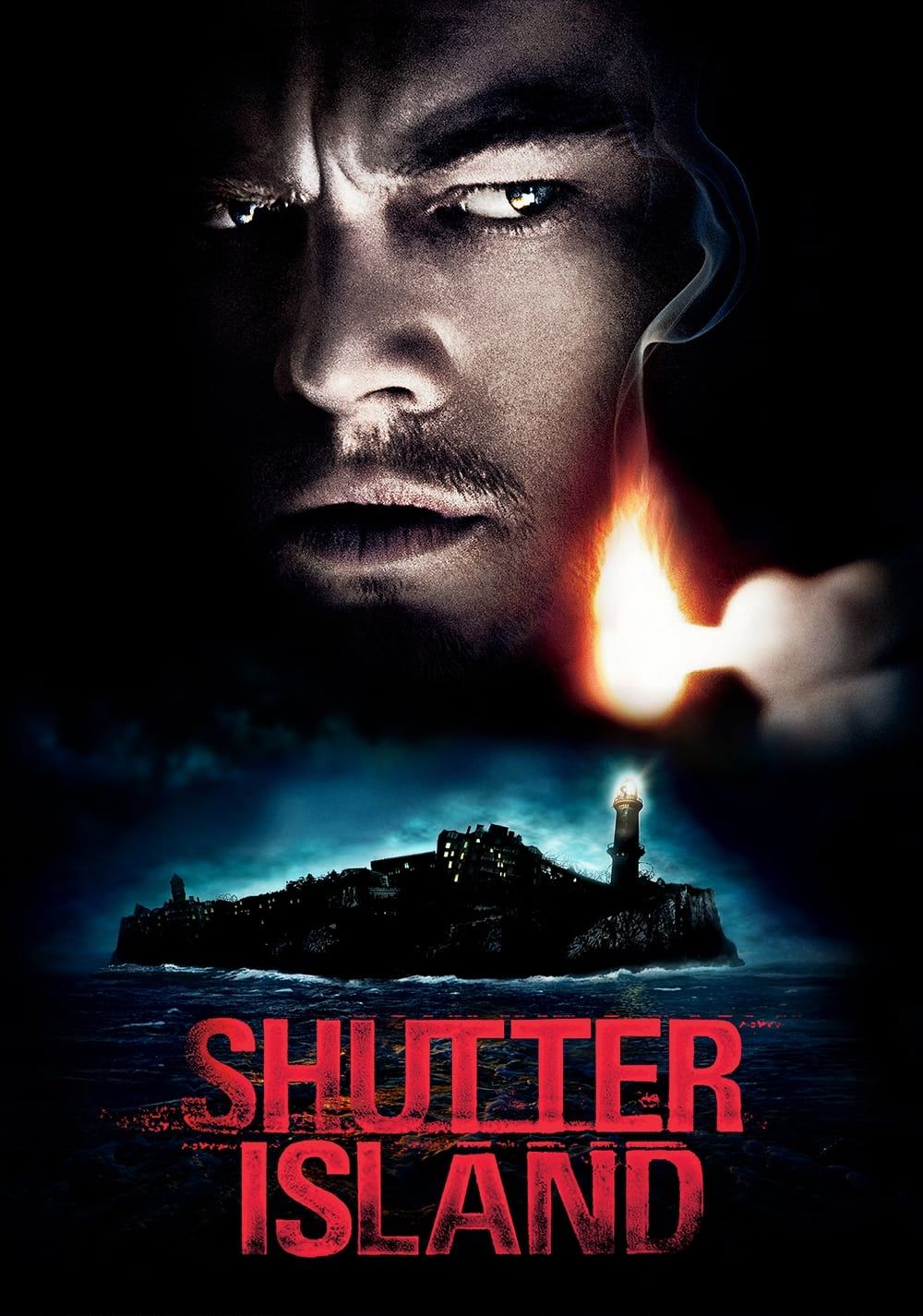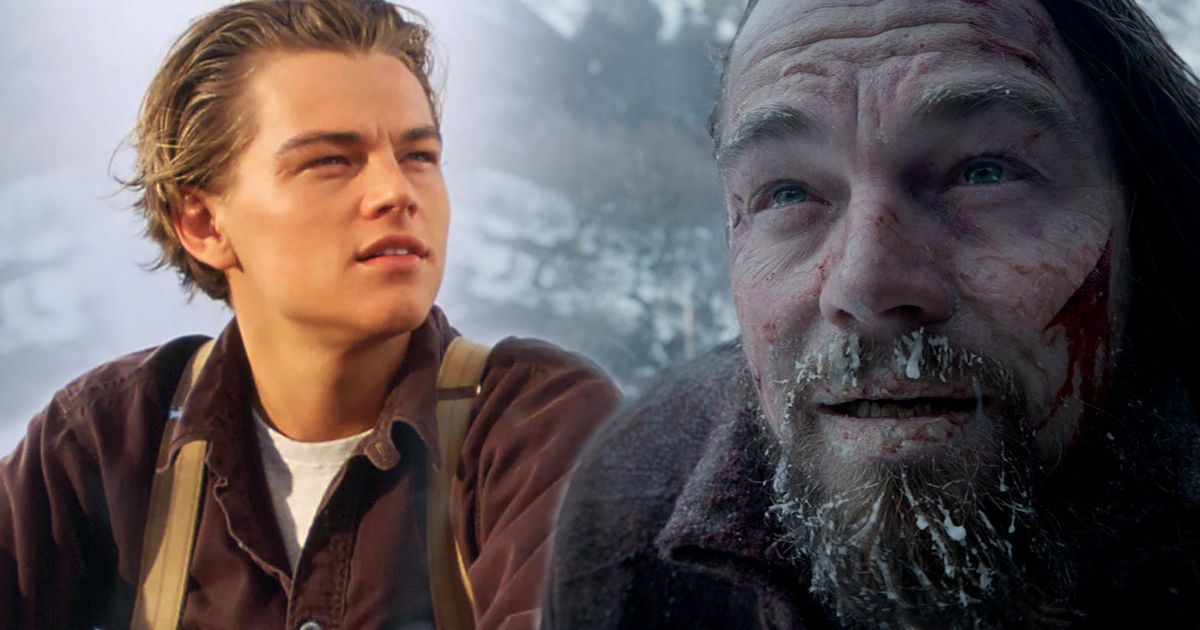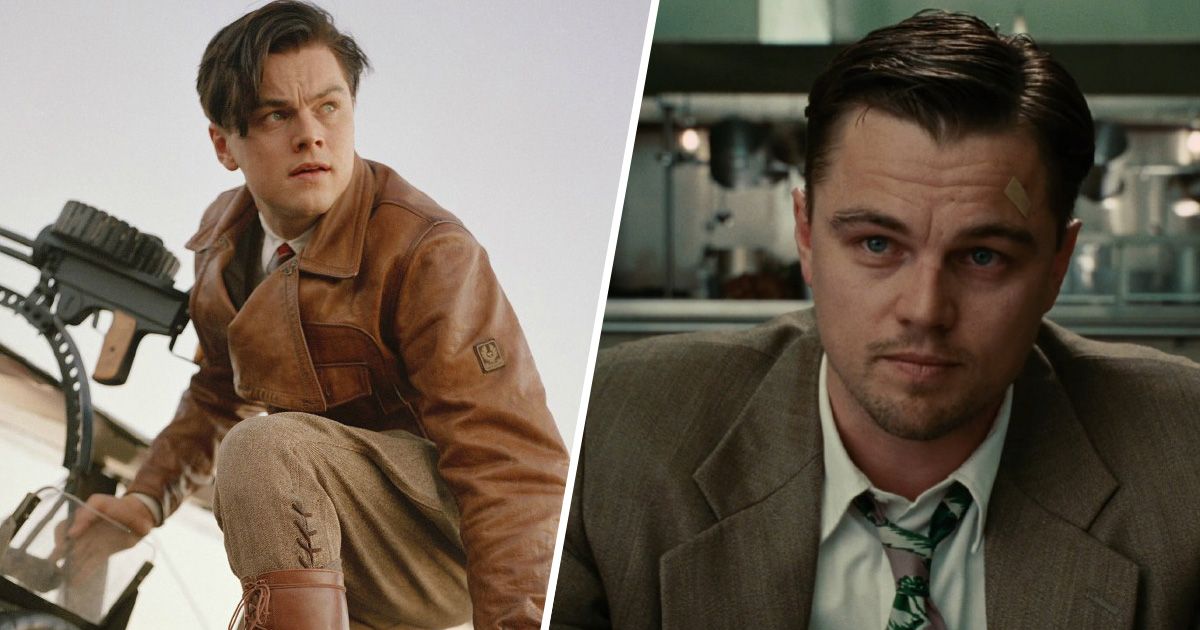Summary
- The ending of Shutter Island reveals a shocking twist that fundamentally changes the film upon a rewatch.
- The ending asks if it is worse to live as a monster or to die as a good man. The ending as a whole is open to audience interpretation.
- After connecting the ending to the numerous clues found throughout, it meaningfully connects to Shutter Island's themes.
This article will thoroughly explain the ending of Shutter Island. Spoilers ahead.
Shutter Island is a movie about Leonardo DiCaprio’s character, Teddy, who is introduced as a US Marshal assigned to investigate the eponymous Shutter Island, a mental sanatorium in the 1950s. He investigates the island, believing that the man who killed his wife, Andrew Laeddis, is there. However, as he unravels what he believes to be a web of intrigue, with clues to watch for everywhere, he slowly yet surely finds out that his entire investigation has been a role-play session to cure him. He finds out that he was never Teddy, the US Marshal, but Andrew Laeddis, who murdered his own wife after she drowned their three children. His partner Chuck, played by Mark Ruffalo, turns out to be a doctor who was watching over him and is actually named Lester Sheehan.
Directed by Martin Scorsese, Shutter Island builds well towards this great plot twist with its dark atmosphere and claustrophobic sense of doubt about the reality of what’s unfolding on screen at any given time. While Scorsese might not be that big a fan of the movie now, per NME, it has endured as a modern classic for thrills and scares. In many ways, it’s similar to the iconic DiCaprio-starring Inception in that it's a solid thriller that plays with what the audience trusts while diving deeply into one man's psyche. Additionally, like Inception, it features an ending that's initially puzzling and confusing due to its openness to interpretation. In this article, we’ll break down the ending and how it can be understood in context with the movie as a whole.
Updated Feb. 11, 2024: This explanation of Shutter Island's ending has been updated with additional content and useful features.
The Ending of Shutter Island

During the ending scene, Andrew and Dr. Sheehan sit down on some steps for a smoke. Andrew was just told that he had made up his entire identity as US Marshal Edward "Teddy" Daniels in order to escape from the reality that he had killed his wife. Andrew, in short, had realized who he really is. Importantly, Dr. John Cawley (Sir Ben Kingsley) told Andrew that he, at one point, realized who he really was before but then relapsed back into forgetting himself, becoming Teddy, and beginning the investigation all over again. Cawley tells Andrew that if his latest treatment fails, then he will be lobotomized. As Sheehan and Andrew are sitting, Dr. Cawley is observing them from afar.
Andrew and Sheehan talk for a while, and Sheehan realizes that Andrew appears to have relapsed back into his identity as Teddy. Andrew is still talking as if he's an investigator unraveling the mystery of Shutter Island. When he figures this out, he looks over to Cawley and shakes his head, indicating to Cawley that the treatment hasn't worked, and so Cawley goes to fetch the men to lobotomize Andrew. Before those men arrive, Andrew says one more thing that sheds a bit of light on why the protagonist keeps recreating this loop of fantasy:
Which would be worse — to live as a monster, or to die as a good man?
He proposes this question to Sheehan before getting up and walking away, all while taking one last drag from his cigarette. Then, Andrew is taken to be lobotomized.
Why Is the Ending So Effective?
Shutter Island's ending, like the ending of Inception, is effective because it resolves the main plot but does not provide complete closure. There is an important question that still has to be answered in the case of both movies that leads back to their respective themes.
In Inception, as outlined by Slash Film, the question is whether the reality Dom Cobb finds himself in at the end of the movie is actually real or another dream. This question is posed when he spins his totem — a top — and the camera lingers on it spinning. In Inception, the top would keep spinning in a dream but fall after some time in real life. This circles back to the main question of the movie regarding what is real and what isn't. Cobb's wife commits suicide because she's convinced her own reality is fake, believing it's the only way to awaken.
Before we discuss the question that Shutter Island raises, it's worth noting that the ending also works due to the exceptional performances of all involved, especially Leonardo DiCaprio's performance. Ruffalo's subtle shake of the head to Dr. John Cawley conveys exactly what Sheehan is thinking. Then, Cawley gives a resigned look of frustration and despair as his attempts to save his patient's mind have been completely fruitless. DiCaprio also plays a perfect Andrew Laeddis at this moment, though what Andrew is thinking up to this point is open to interpretation and not necessarily clear. It comes as no surprise that DiCaprio manages to convey an accurate depiction of a twisted, even broken, mind.

Best Leonardo DiCaprio Movies, Ranked
The Oscar-winning Leonardo DiCaprio has starred in iconic movies like Titanic and The Revenant which were just a few of his greatest performances.While the high-profile actor stands out with an eclectic variety of complex roles, which certainly required a great amount of dedication and significant attention to detail, DiCaprio’s portrayal of Andrew Laeddis still stretched far beyond what he was used to and undoubtedly took him out of his comfort zone. The psychological aspect of this role, exploring the effects of trauma so deeply that the lines between reality and imagination are entirely blurred, posed a challenge, even for a phenomenal actor such as Leonardo DiCaprio. However, especially when taking a closer look at how the actor manages to carry on the confusion between reality and imagination at the end of Shutter Island, highlighting the uncertainty of whether Andrew remains aware of his situation or not, it becomes clear that DiCaprio always finishes his projects with the utmost dedication.
What Does the Ending of Shutter Island Mean?
Shutter Island's ending can be interpreted in two ways. The first is the straightforward answer: that Andrew Laeddis has once again relapsed into his delusion, just as Dr. Cawley described earlier. It would be a straight-forward ending and highlight the justification for Andrew's lobotomization. The other possibility, though, gets into the heart of the movie's themes. The second interpretation revolves around what Andrew asked at the end of the movie: if it is worse "to live as a monster, or to die as a good man." A plausible theory might be that his only way out of his misery of living in between reality and imagination, the only bearable way, is to take charge of his pain and make one last, arguably conscious decision: to die as a good man. It seems as though he has moments in which he is aware of his existence and the pain that comes with it.
Shutter Island is essentially about Andrew falling into a delusion that he is a better man who didn't kill his wife and that his time on the earth has meaning because he's looking for a way to avenge her rather than live with the guilt of having killed her. Andrew asking Sheehan that question reframes his actions. Instead of falling passively into the delusion, as a result of his subconscious, he decides to fully embrace an existence where he died as a good man. However, Shutter Island is definitely a movie which allows for a lot of interpretation.
What Is the Psychology Behind the Ending?
Because the movie centers around a patient and his doctor, it's only natural for us to try to look at the ending from a psychoanalytic point of view. After losing his three children because of his wife's untreated mental illness, Andrew kills his wife, making his story even more tragic. This is enough to send anyone to an asylum for the rest of their lives. However, people have very different reactions to traumatic events. Some would indulge in substance abuse, while others would engage in risky behavior, hoping that a rush of adrenaline would drown out the guilt and the pain.

Every Leonardo DiCaprio and Martin Scorsese Movie Collaboration, Ranked
Leonardo DiCaprio and Martin Scorsese are considered to be the best in the world at their craft. Here are all of their movie collaborations, ranked.In fact, all those behaviors have one thing in common. They are used as a means to dissociate from an unbearable truth. It's just that Teddy took it a bit too far. The ending draws a very clear psychological diagnosis for the patient without openly saying it. His hard-nosed detective fantasy proved to be nothing but a symptom of his Dissociative Disorder resulting from his lingering and unattended trauma. Simply put, creating an imaginary identity that resembles in no way the true self that he has come to abhor and reject because of the guilt helps him cope with surviving the death of his family.
In a further sense, the ending of Shutter Island sparks a conversation about real-life events in which convicted murderers might suffer from a similar dissociation. The movie tackles the complexity of deep, simply unbearable pain and how it can significantly affect a person’s psyche. This dissociation, which can be clearly seen in Andrew, is a means of self-protection, an escape from one’s own horrendous deeds or such immense emotional pain that feels life-threatening.
The Ending of Shutter Island, Explained
What makes this ending uniquely special is its subtle and smart revelation of Andrew's psychological plight. It shows that his only survival instinct is to succumb to an episodic sense of detachment and to travel outside himself, leaving all the memories that make him a monster behind. Simply put, this dissociative instinct arises when trauma still lingers in the mental and emotional background of the patient.
It's also a state of failed forgetting. As Andrew could not forget his guilt, he fled to another stream of reality in which he was shielded from facing his tragic trauma. This extremely dark ending scene proposes that unless the protagonist faces his trauma head-on, this repetitive cycle of mental illness will be perpetuated. Hope is, nonetheless, restored to the viewers when, in an intimate moment of stolen lucidity, Laeddis confesses to Sheehan that he is intentional about his indulgence in his delusions.
That said, it's not necessarily a strict binary. Perhaps Andrew is mostly delusional, but the comment about dying a good man is a moment of clarity in an otherwise confused haze. The strength of an ending like this is the fact that you can never be 100% sure. The ending has closure for the character, even if we, as the audience, don't. We know Laeddis is going to be lobotomized, but the question is how much agency and choice he has in his own madness. One could forever talk about this ending and what it represents, but it's not unclear or lazy. It has a clear thematic meaning and presents possible questions that linger with you after each viewing. Indeed, per IndieWire, answers to Shutter Island's ending are still being pondered over. That said, it's a movie with an open ending you have to see if you haven't yet.
Buy or Rent Shutter Island on Apple TV
Coincidentally, another movie starring Leonardo DiCaprio has a confusing ending. If you want to see Christopher Nolan give more insight about the ending of Inception, check out our video below:

